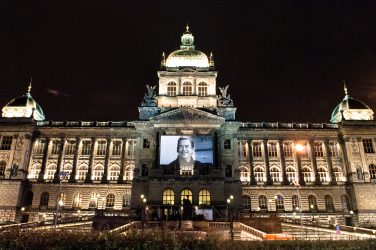As the Germany Presidency of the Council of the European Union begins on 1st of July 2020, a specter of anticipated nostalgia of Merkel´s as a source of stability haunts many across the EU. However, there are at least two reasons to be skeptical about the political legacy of the first Bundeskanzlerin of Germany, as Merkel´s 16 years in power have reshaped the role of the Federal Chancellor and the nature of political contestation in Germany, thinks E&M‘s Fernando Hortal Foronda. The race to succeed Merkel as leader of the CDU will be key to reshape a posteriori the political legacy of Merkel in Germany and in Europe.
When in later summer or early autumn of 2021 Germany has its next federal election, the Merkel era will come to its end. The Federal Chancellor announced in the Parteitag of the CDU of 2018 that she would not seek a fifth term as (the first) Bundeskanzlerin of Germany. To take some perspective on how long the Merkel Era has been as a historical period, during Merkel´s time in in the Chancellery the White House has hosted three different American Presidents (and might, for Angela´s relief, host a fourth one from 2021 onwards), 5 different UK Prime Ministers have slept in Downing Street 10, Italy and Japan have had 7 Prime Ministers each, and the People´s Republic of China has had two different Paramount Leaders. Among the great powers, only Putin will see the rise and dawn of Merkel as the leader of a superpower. Angela Merkel is also a rare example of a politician who has –to her misfortune- politically survived her own successor, as Annegret Kramp-Karrenbauer (aka AKK) ended up renouncing this year hear position as the leader of the CDU. When she will step down next year, she will do so as the longest-serving German Chancellor in democracy, leaving Otto von Bismarck still as the longest-serving Chancellor of Germany.
As Germany´s 2020 EU Council Presidency starts in July 2020, the mood in many European capitals about the ending of Merkel´s Era is one of anticipated nostalgia. Multiple quality European newspapers have already started to publish lengthy articles and reportages discussing mostly her merits. It is beyond of the scope a simple commentary article to delve into any particular aspect of Merkel´s policies, which in the other hand have often experienced many U-turns, from the approach to finances over the last ten years to her asylum policy, as she went from comforting a Palestinian kid after telling her that some migrants would have to go home to the “Wir schaffen das”. Instead, I would only like to make two political comments.
The post-Merkel´s Era is one of ancitipated nostalgia
First, people as diverse as the demonstrators in Syntagma Square, a bunch of prominent Brexiteers and some anonymous Elysée officials would like to brand Merkel as an all-mighty politician whose will prevails within and beyond the Rhine and the other. However, as she would confess to a Berlin correspondent of a major British newspaper, she was and had always been, a politician in a very precarious position. Complex equilibria in the CDU, in the Union, in the German government, in the Bundestag and Bundesrat, and in the European Council have meant that Merkel found herself with very little room for maneuver and in need of making extraordinary efforts to achieve limited success. This is consistent with the word of praise that different European leaders have had for her, as they have described her as someone who never leaves the negotiation table -with the infamous European Council of February 2016 where she was spotted getting frittes in full Belgian style in Maison Antoine. The outcomes of the Merkel Era –from gay marriage to the EU´s Recovery Plan and from the EU-Turkey Deal to the German minimum wage- should then not be seen as her politic testament, but as that of her era.
Second, Merkel´s leadership through multiple crises –or, at least, events framed and widely seen as a crisis- has meant that the lines between her position as government and national leader have blurred. As some of those who might have watched The Crown might remember, when thinking about the constitutional architecture of the United Kingdom, Walter Bagehot though of a constitution as needing two pillars: the dignified and the efficient. Whereas the former is to ‘excite and preserve the reverence of the population’, the latter would employ that homage in the work of government. Indeed, for the Greatest Victorian, Queen Victoria embodied the dignified power whereas her Majesty´s Government constitutes the efficient part of government.
Without viable contenders, there is no contention, and contention is to liberal democracy what salt is to a healthy and enjoyable diet.
The very fact that Merkel -only partially ironically- was nicknamed Mutti (mummy) by some of her admirers might suggest that her actual role has exceeded the one of the effective government leader, as she does not only represent a view of the German interests and defends some German values, but also embody them. In spite of the apparent attractiveness of this symbiosis, this has troubling implications. In a democracy, leaders should go to elections representing a party, not the idea that the alternative to one´s party is barbaric or contrary to what the nation is. Although open to interpretation, the giant poster of her hands in the 2013 election seems to suggest this.
Identifying a clear and civic alternative to Merkel has been harder as she accumulated years in power. Without viable contenders, there is no contention, and contention is to liberal democracy what salt is to a healthy and enjoyable diet. In this sense, her stepping down is good news, as her absence will reopen space for competition among different civic views in Germany, erasing a division between Merkel´s CDU and her possible partners and non-Merkel related alternatives, from which the AfD could have profited more than it has already. On the other side of the Rhine, were Macron´s grip on power might last for a period as long as Merkel´s era, attention should be paid to post-Merkel societal and political developments by those who want to be ready to face post-macronisme-(ou-barbarie) in due time.
Of course, much of what happens after the next German federal elections depends on who will succeed Merkel as leader of the CDU after the members of the CDU decide on their new leader in December 2020, as the candidate of the CDU will be very likely be elected as German Federal Chancellor in 2021. Three male contenders are still in the race. First, an old foe of Merkel, Friedrich Merz could win the leadership of the CDU. This would most probably mean a turn towards law and order and free-market policies, which might get the CDU more votes from Alternative für Deutschland and the FDP, leaving some room in the centre for the SPD and the Greens. Merz already failed to win the leadership of the party in 2018, as AKK narrowly defeated him then. Norbert Röttgen, a centrist, CDU-establishment with a bad record running as a lead candidate, would consolidate Merkel´s centrist turn and advocate the core values of the Bundesrepublik since the Westbindung in most policy areas. Europhiles would be happy to have someone who sided with the CJEU and the ECB and its policies after the German Constitutional Court, in short, set a bomber under the EU legal order. Do not be surprised to see a post-electoral coalition à la Austria with the Greens as a junior partner of the conservatives should Röttgen win, although he might be a more palatable partner for the Greens than Kurz is in Austria. The third contender, Armin Laschet, can be seen as an intermediate option between the two previous candidates, and one whose political direction would not be too different from Merkel. He has previously worked both with the FDP and with the Greens, so he would maybe attempt again to build the Jamaica coalition that did not come to fruition after the 2017 German federal elections.
Lastly, despite the fact that Angela –just like Hannah Arendt- has refused to define herself as a feminist, she has indeed made an enormous contribution to the feminisation of the German political landscape. From AKK to the current European Commission President Ursula von der Leyen, Merkel has chosen to surround herself and promote women to the highest offices when she had the chance. Fifteen-year-old children in Germany have grown up seeing only a female leading their country. In many aspects, this might be one of the most underestimated and positive effects of the Merkel Era.
Cover photo: Bundesarchiv, B 145 Bild-F087611-0001 / Engelbert Reineke / CC-BY-SA 3.0










